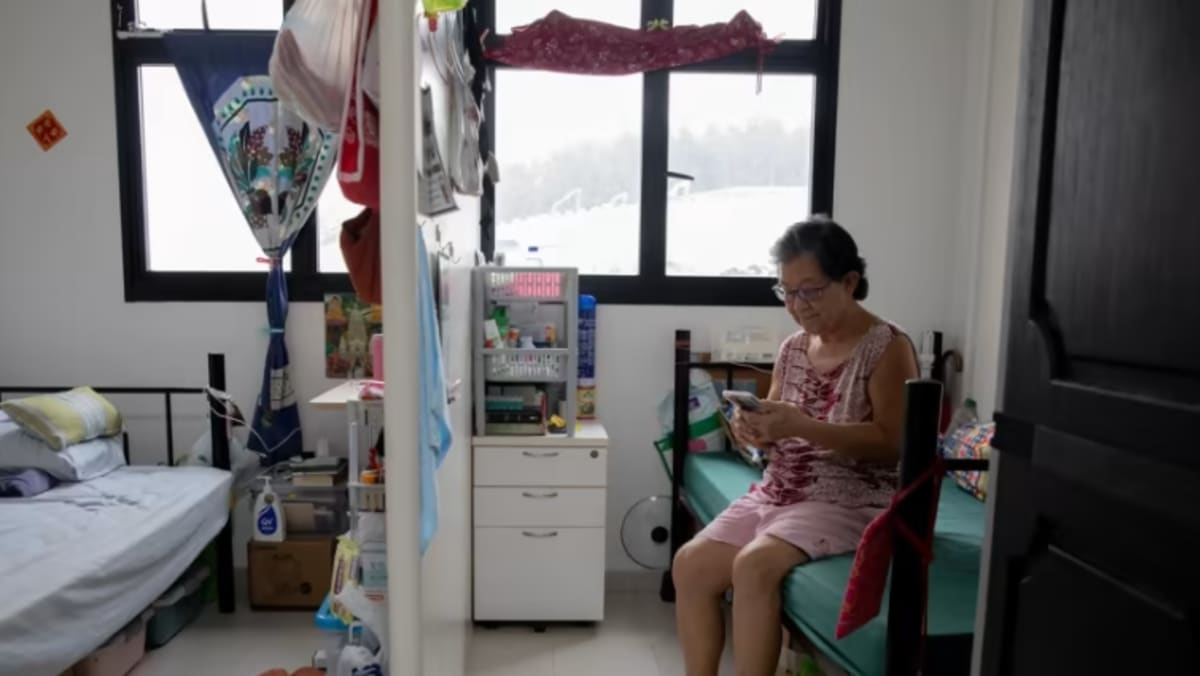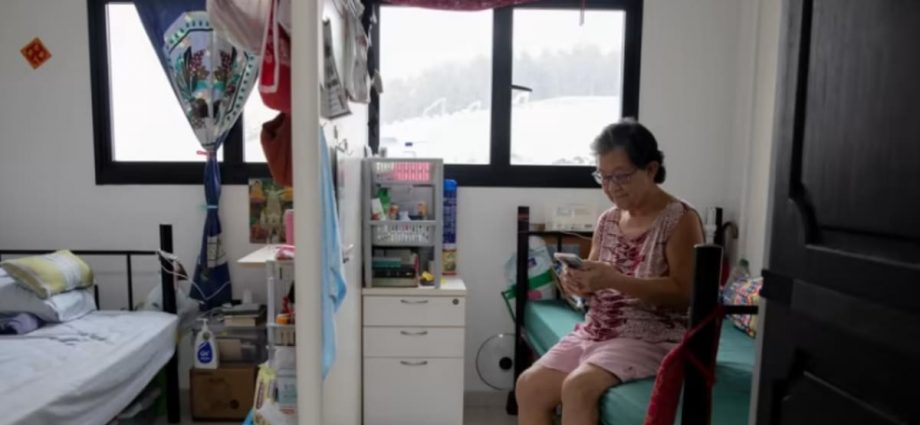
THE BAD AND THE UGLY
The majority of the tenants who spoke to TODAY said that small arguments and disagreements are part and parcel of living with strangers, but some have had it worse than others.
Mr Kalimuthu said that his sour relationship with his ex-flatmate reached a point of no return when the latter insulted his mother and threatened his life.
“He had gangster connections and when he was drunk, he threatened to gang up against me and beat me up. I was so scared but I didn’t want to fight him,” said the 50-year-old.
Fearing for his safety, Mr Kalimuthu called the social service operator at his block, who helped him file a police report.
He was then placed in an interim flat before moving out to a new apartment with a new flatmate.
Another tenant, Mr Hadi, recalled that his ex-flatmate had problems controlling his bladder, and would wet his bed almost every day.
He said that the smell of urine was so strong that it would irritate his eyes and cause them to water.
The pungent stench of urine was still lingering in his small unit for two when Mr Hadi spoke to TODAY, despite the fact that his co-tenant had moved out about two weeks earlier.
To make matters worse, the co-tenant was dirty, untidy and refused to be considerate, said Mr Hadi.
“He dirtied the kitchen and the toilet but didn’t clean, so I cleaned them. I am a clean person by nature so I cannot stand a dirty living environment,” said the 62-year-old delivery driver.
He added: “One day, he (flatmate) just snapped at me. He said, ‘why do you keep bringing up about me peeing all the time?’ So I … didn’t bring up the matter anymore.”
Mr Hadi said that when he brought the matter up to the social workers operating the rental flats, they tried to advise the co-tenant, but it fell on deaf ears.
“The social workers even supplied diapers for my ex-co-tenant but he refused to wear them,” he said.
While some tenants request direct intervention from the social service operators and law enforcement, others opt for a softer approach.
Mr Vincent said that he had complained to the operator about his flatmate’s refusal to be more considerate and make less noise when he returns home late at night, but requested them to advise the man without mentioning his complaint.
“My flatmate would slam the door of the flat when he’s angry at me. The social workers helped me to talk to him but it didn’t really help much in changing his behaviour. But it’s good to have them around to talk to him,” he said.
All of the tenants said that the response time of the operators is always prompt.
In response to TODAY’s queries, HDB said that this is possible since the operators are stationed on-site.
“Although disagreements may still occur from time to time among the tenants due to differences in living habits, most of these disputes were resolved amicably.
“In particular, early intervention by the operator helps to prevent the disputes from escalating. If necessary, the operator can also make changes to the flat sharing arrangements,” said HDB, which had responded on behalf of the operators.
Speaking to TODAY, Good News Community Services – which runs the JSS-OR pilot at the Bedok North and Buangkok sites – said that tenants are informed prior to moving in that they will have to raise an issue with the operator if they need help in settling disputes with their co-tenants.
Social workers will then attend to the tenant’s feedback by engaging those involved in the dispute, which are commonly about hygiene and cleanliness, usage of common areas or items, and noise.
The operator said that the time needed for resolution of the disputes depends on the nature of the disputes.
“Most disputes can be resolved quickly because the social workers are on-site and able to respond quickly to disputes.”
THE SILVER LINING
Despite the dark clouds hovering over some co-tenants’ flats, others alluded to the silver lining in the JSS-OR scheme.
A tenant, Mr Tan Feng Ann, told TODAY in Mandarin that the best part about living in a unit under the scheme is having access to an on-site operator.
In case of fights and disagreements, office staff are able to head over quickly to offer assistance, he said, contrasting it with the experience of living in other models of rental housing, where “even if you get beaten to death, nobody knows”.
“Now, they know everything,” he added.
Residents like Mr Tan, who spoke positively about the scheme, emphasised the need for mutual respect and to “live and let live”.
“You should know we’re staying in rental housing. This is a shared home, not your own house,” he said.

